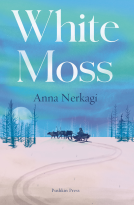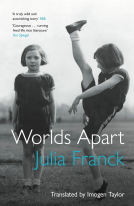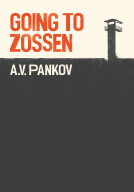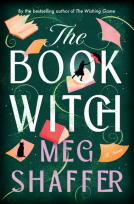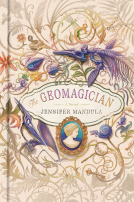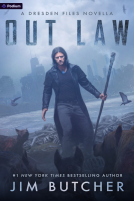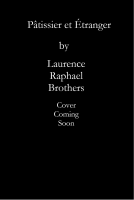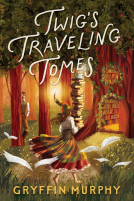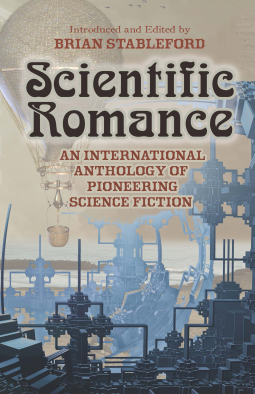
Scientific Romance
An International Anthology of Pioneering Science Fiction
by Brian Stableford
This title was previously available on NetGalley and is now archived.
Send NetGalley books directly to your Kindle or Kindle app
1
To read on a Kindle or Kindle app, please add kindle@netgalley.com as an approved email address to receive files in your Amazon account. Click here for step-by-step instructions.
2
Also find your Kindle email address within your Amazon account, and enter it here.
Pub Date Jan 18 2017 | Archive Date Mar 01 2017
Description
This compilation presents more than two dozen early tales by Verne's and Wells's immediate predecessors, contemporaries, and descendants, focusing on the middle period, when the genre was at its most enterprising and exuberant. Originally published between 1835 and 1924, the stories offer early interpretations of the futuristic societies, rogue stars, rebellious machines, and other now-familiar themes of speculative fiction. Featured authors include Edgar Allan Poe, Nathaniel Hawthorne, Ambrose Bierce, H. G. Wells, Jack London, and Sir Arthur Conan Doyle, as well as lesser-known writers. Brian Stableford, a legendary science-fiction author and editor, selected the stories, for which he provides an informative Introduction and brief biographies for each author.
Available Editions
| EDITION | Paperback |
| ISBN | 9780486808376 |
| PRICE | $14.95 (USD) |
| PAGES | 352 |
Average rating from 11 members
Featured Reviews
 Margaret B, Reviewer
Margaret B, Reviewer
An interesting but strangely unmoving and academic collection of short works that were written before the advent of traditional science fiction.
Stableford provides a revealing introductory history of what is loosely termed "scientific romance", the forebear of the science fiction which became popular after World War I. Most entries are short stories, a few in verse, and some would be categorized today as horror. A few stories had somewhat modern feel, but mostly not, and this is why the collection lacks something for the average reader. Quite a few of the authors are obscure today, and there may be a reason for this, so while they make for valid additions to the collection they aren't necessarily rewarding to read.
I did enjoy a few of the stories very much, but all-in-all I think this will be useful for students and scholars of the genre rather than for those who read science fiction for enjoyment.
Review: Scientific Romance, edited by Brian Stableford.
Before the term "science fiction" was invented, stories of scientists and their possible discoveries, of fantastic (but at least remotely plausible) voyages, and of strange (but not overtly supernatural) phenomena where known as "scientific romances" in France, Britain, and the US. This volume collects a number of these early works, from all three countries.
I read an ARC from Netgalley, so I don't know if it's due for another editing pass before publication; the version I saw had a number of scanning recognition errors that had not been corrected. Picking these up requires painstaking work by a good proofreader, and they're the bane of any book based on a scan.
Setting that aside, the stories themselves varied from the merely historically interesting to some that I still enjoyed as a modern reader. A few are clumsy explorations of philosophical points. There seem to have been a lot of socialists, for example, who expressed their ideas by means of scientific romance - not just H.G. Wells, the giant of the field in Britain, who is represented here by "The Star," but several others too. I don't mean to imply that all the socialist stories are mere clunky propaganda pieces; "The Child of the Phalanstery" by Grant Allen is an extremely well-constructed speculation on the darker side of a utopia with an active eugenics/euthanasia program, and is relevant to debates going on today.
Others of the stories are, now that we have so much more scientific knowledge, obviously impossible, though despite that, I found Jack London's "The Shadow and the Flash" still effective as a story. The same can be said of Conan Doyle's "The Horror of the Heights". But several succeed both as stories and in terms of their speculations. It's interesting to see some of the perennial themes: the danger of humans being replaced by intelligent machines, the creation of an unstoppable plague, the end of the world from various causes, radical life extension, interference with human memory. There's even a kind of predecessor to "Planet of the Apes" in Edmond Harcourt's "The Gorilloid".
A number of the authors were familiar names to me: Nathanael Hawthorne, Fitz-James O'Brien, James Clerk Maxwell, Ambrose Bierce, Frank R. Stockton, Jerome K. Jerome, Jack London, William Hope Hodgson and Sir Arthur Conan Doyle. Others were new, mainly the French ones, which are presented in translations which read exactly like the English-language works of the time.
There's a scholarly introduction - this is clearly a kind of literature on which the editor is an expert - and an appendix that lists the major works of scientific romance published from 1833 to 1914. I'm not sure why Frankenstein (1818) doesn't make the list; it seems as if it would fit the parameters.
Most of the works here are, of course, by men (I believe Camille Debans' "The Dancing Partner" is the sole exception), and for a balance, anyone interested in early speculative fiction should read the stories in The Feminine Future: Early Science Fiction by Women Writers, which contains some excellent stories from a slightly different, but overlapping, time period (1873-1930). If you're interested in the roots of science fiction, though, either as a scholar or simply as a reader, Stableford's Scientific Romance is a good collection.
I really enjoyed the stories in this book even though I'm not usually a big fan of 'hard' sci-fi. But these tales, published between 1835 and 1924, are more Victorian (and Edwardian) explorations of the scientific advances which thrilled the society of the day. Their authors range from the incredibly well-known, like Conan Doyle, to unknowns and they hail from France and America as well as the UK. They are, in fact, something like the originals of steampunk itself! There are stories of automata, intelligent machines who, since they are given a social conscience, come to the conclusion that the workers would be better off without machines taking their jobs: one where Scotland becomes a nature reserve and historical theme park (with the help of a device which can control the weather) and one which explores the human costs of 'perfect' societies (eugenics and the fact that cultural/religious norms hold more sway than natural emotional responses). My favourites (probably no surprises here) are a tale which explores climate change caused by humankind's over-use of fossil fuels and one which turns evolution on its head in a lecture given by a gorilla professor on whether apes were descended from humans.
I saw these stories as proof that sci-fi isn't all about space battles and explosions (as good as Rogue One was...). It doesn't even have to involve space - science has enough mysteries to keep us going even today.
It’s great early science fiction and nothing to do with romance
This is an excellent collection of early science fiction stories from authors in the US, UK and France. I had heard about several of the authors such as Edgar Allan Poe and Arthur Conan Doyle, but others were new to me. Editor Brian Stableford did a great job in selecting the stories and a credible job in writing the biographies of the writers. In the introduction (worth reading) he also explains the subtle difference between scientific romance and science fiction. This is an anthology well worth reading.
Disclosure: I received a complimentary copy of this book via Netgalley for review purposes.
Readers who liked this book also liked:
Rachel Joyce
Historical Fiction, Literary Fiction, Women's Fiction
